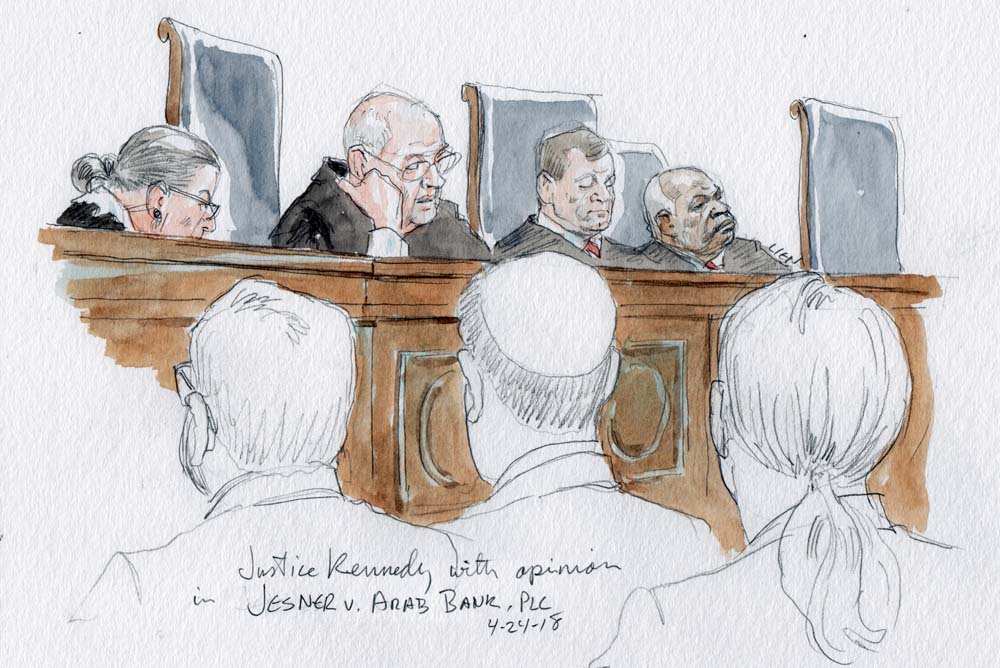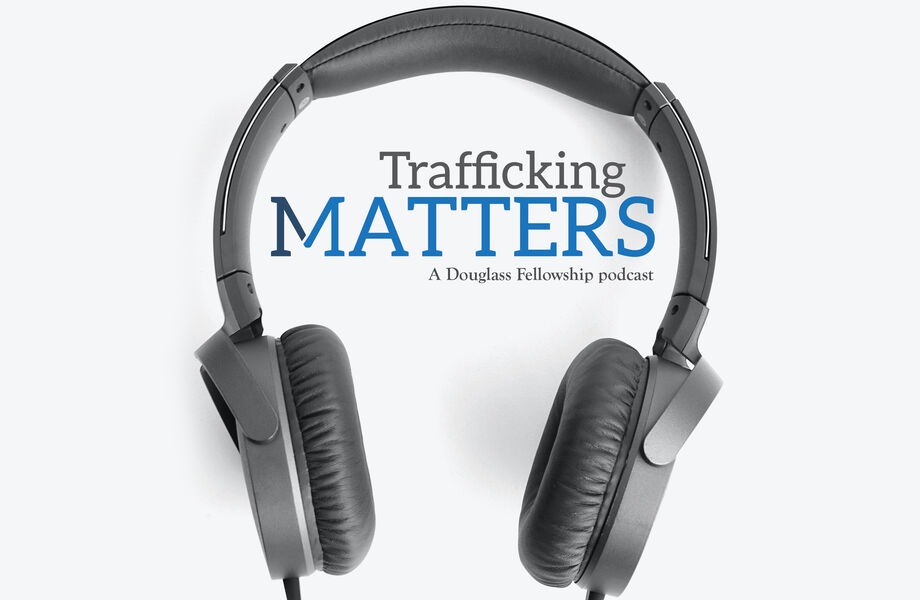In April 2018, the Supreme Court dealt a blow to human rights advocacy efforts when it held that foreign corporations may not be defendants in civil suits brought under the Alien Tort Statute (ATS) in Jesner v. Arab Bank.1 This ruling means foreign nationals can no longer use the U.S. court system to hold foreign corporations accountable for human rights abuses under the ATS. Since many victims of human rights abuses are now barred from U.S. courts, what effect could this decision have on victims of human trafficking?
The ATS and the Path to Justice for Human Rights Abuses
For almost 200 years, the ATS was a dormant statute collecting dust in American legal history. This all changed with Filártiga v. Peña-Irala, where a father-daughter duo from Paraguay tried to get justice for the brutal murder of their son and brother by suing the person responsible for the killing after he fled to the United States.2 For the first time, a federal court allowed a foreign national to sue another foreign national under the ATS for conduct that took place outside of the United States. Since then, human rights lawyers representing foreign nationals have used the ATS as a method of holding foreign national perpetrators accountable for international human rights violations.3
In the wake of Filártiga and subsequent ATS litigation, the Supreme Court began to define the limits of the ATS. For example, the Court blocked suits without sufficient ties to the United States from entering the U.S. court system, a principle called the “presumption against extraterritoriality.”4 This presumption means that U.S. law can no longer apply to other countries unless Congress explicitly says otherwise. In the context of the ATS, only conduct that “touches and concerns” the United States with “sufficient force” to overcome the presumption could successfully be challenged in U.S. courts.5
Limits of the ATS
Most recently, the Supreme Court drastically limited its application of the ATS in Jesner v. Arab Bank. The question was whether foreign plaintiffs could use the ATS to force foreign corporations into U.S. courts for human rights violations that took place outside of the United States. The Supreme Court’s answer was a resounding “no.” According to the Court, United States’ courts were not the appropriate venue for non-U.S. citizens seeking to sue the foreign corporations that harmed them outside of the United States. Relying heavily on the principle of separation-of-powers, the Supreme Court determined that Congress, rather than the courts, should be the ones to decide whether to expand the scope of the ATS to include foreign corporations. The Supreme Court further reasoned that corporate liability was not essential for foreign plaintiffs to hold perpetrators in the United States liable, and would inevitably discourage global investment, thereby undermining economic development, and ultimately harming human rights progress.

Justice Kennedy with opinion in Jesner v. Arab Bank, PLC
The Supreme Court’s decision in Jesner v. Arab Bank significantly hurts the ability of most foreign human rights abuse victims to obtain justice against foreign corporations. Take Kaplan v. Central Bank of the Islamic Republic of Iran, for example.6 In this case, a terrorist organization fired thousands of rockets and missiles at civilians in northern Israel, killing many and injuring hundreds. The non-American victims, victims’ family members, and other representatives sued two banks under the ATS, claiming that they were involved in money transfers responsible for their injuries. Heeding the Supreme Court’s decision in Jesner, the D.C. Circuit re-affirmed the rejection of the ATS claims, taking away the non-American plaintiffs’ hopes of recovering for their injuries.
The TVPRA as an Alternative Avenue to Justice
While Jesner has dire consequences for many non-American victims of corporate human rights abuses, the Supreme Court decision may have less of an impact on foreign human trafficking claimants.
In Jesner, the Supreme Court pointed to substitutes for the ATS that provide avenues for foreign plaintiffs to hold perpetrators responsible for their actions. Among the remedies listed, the Supreme Court mentioned the Trafficking Victims Protection Reauthorization Act (TVPRA)—federal legislation providing civil remedies for victims of slavery.7 The TVPRA leaves the door open to foreign victims filing civil suits against corporate defendants—a door that is firmly shut under Jesner. Under this statute, U.S. federal courts may hear claims where the trafficking occurred abroad—including trafficking done by corporations.8
Unfortunately, the TVPRA is not the saving grace for all foreign human trafficking victims, as courts have put limits on its application. For example, in Adihikari v. Kellogg Brown & Root, Inc., twelve Nepalese plaintiffs—one living and eleven dead individuals represented by their family members—were promised hotel jobs in Jordan.9 Once they arrived in Jordan, the plaintiffs were threatened, abused, and confined. Their passports were confiscated. They were told that they would not be staying in Jordan, but would be sent to Iraq to work on a U.S. military base and be paid significantly less than the amount they were promised.

On route to Iraq, eleven of the plaintiffs were captured and killed by Iraqi insurgents. The plaintiffs sued the companies responsible for their abuse, asserting claims under the TVPRA and the ATS. The court rejected the ATS claims because of the presumption against extraterritoriality (e.i. the abuse was not sufficiently connected to the United States).
In this case, where the ATS failed to help the plaintiffs, the TVPRA was not a successful alternative. The court decided that the 2008 amendment that stretched the TVPRA’s coverage to trafficking outside of the United States did not apply to trafficking that occurred before 2008. Thus, the plaintiffs were barred from U.S. courts.
Limitations of Other Avenues of Relief
Cases like Kaplan and Adhikari illustrate the narrow window of opportunity that non-American human trafficking victims are given to pursue their claims in U.S. courts. Non-Americans who want to keep foreign corporations accountable for trafficking abuses from before 2008 are currently at a loss in some courts—the ATS limits claims geographically and the TVPRA limits claims temporally. Those individuals are then left to the legal devices of their home countries and may face countless more obstacles in their journey for justice. Some countries’ judicial systems may be vulnerable to corruption,10 negatively affecting the application of the rule of law and precluding the possibility of acquiring sufficient legal remedies.11 Moreover, victims may not have access to representation in the host country. The financial burden that vulnerable victims shoulder is increased by a lack of available pro bono attorneys, rare use of contingency fees, and the existence of “loser pays” cultures in host countries.12 These complications may disincentivize survivors of human trafficking from bringing their claims, receiving restitution, and preventing the repetition of such harms.
Conclusion
While the decision in Jesner v. Arab Bank significantly limits the application of the ATS, all is not lost for non-American victims of human trafficking. Under the TVPRA, foreign survivors of human trafficking may still bring suit against the foreign corporations responsible for their abusive human rights practices. However, for foreign plaintiffs suing foreign corporate defendants for human trafficking abuses that occurred before 2008, seeking justice in U.S. courts remains unlikely absent Congressional action.
- 1 See Jesner v. Arab Bank, PLC, 138 S. Ct. 1386, 1407 (2018).
- 2 See Filartiga v. Pena-Irarla, 630 F.2d 876, 878 (2d Cir. 1980).
- 3 See generally John Roe I v. Bridgestone Corp., 492 F. Supp. 2d 988 (S.D. Ind. 2007); see also Licea v. Curacao Drydock Co., 584 F. Supp. 2d 1355 (S.D. Fla. 2008); see also Doe I v. Nestle USA, Inc., 766 F.3d 1013, 1028 (9th Cir. 2014).
- 4 See Sosa v. Alvarez-Machian, 542 U.S. 692, 724 (2004); see also Kiobel v. Royal Dutch Petroleum Co., 569 U.S. 108, 124 (2013).
- 5 Kiobel, 569 U.S. at 125.
- 6 See Kaplan v. Central Bank of the Islamic Republic of Iran, 896 F.3d 501, 505 (D.C. Cir., 2018).
- 7 28 U.S.C. § 1350
- 8 See 18 U.S.C. § 1596(a)(2); see also Ratha, 2016 WL 11020222, at *6.
- 9 See Adhikari v. Kellogg Brown & Root, Inc., 845 F. 3d 184 (5th Cir. 2017).
- 10 See Gwynne L. Skinner, Beyond Kiobel: Providing Access to Judicial Remedies for Violations of International Human Rights Norms by Transnational Businesses in a New (Post-Kiobel) World, 46 Colum. Hum. Rts. L. Rev. 158, 172 (2014).
- 11 Id.
- 12 Id.




